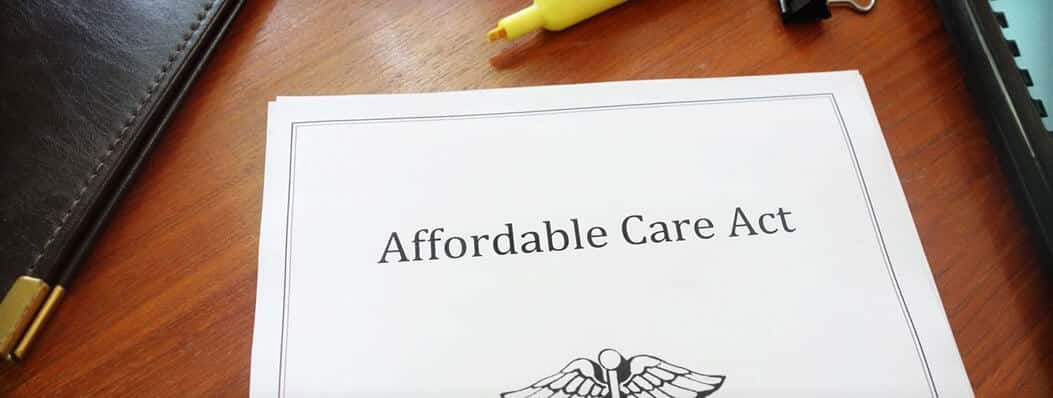Now that the Electoral College has confirmed Donald Trump as our next president, many are looking forward to big changes come January. One of the top priorities for the Republicans, who control the House and the Senate, will be to repeal Obamacare – a goal that they have had since the Affordable Care Act was passed. With the keys to the kingdom solidly in the hands of the GOP, it’s almost a certainty that Obamacare will be put on the chopping block as soon as Trump is sworn in as president.
The repeal of the ACA will certainly have big ramifications for the healthcare of millions of people, but it will also have a huge impact on taxation – an aspect of the political wrangling that has gone largely undiscussed. Here’s a look at how repealing the ACA will affect taxation:

Right now, the Affordable Care Act requires that every individual have insurance, either through their employer or through the marketplace. Those who do not have insurance coverage must pay a penalty when they file their taxes. In 2014, that penalty was only $95. This year, the penalty was $695.
The individual mandate was challenged all the way to the Supreme Court, but its constitutionality was upheld.
In 2014, a provision was added to the ACA that required all employers with 50 or more full-time workers to offer them an affordable healthcare plan. The penalty for failing to do so is $2,000 per employee.
If Republicans repeal the ACA, those taxes would be eliminated immediately. There has been some talk of repealing the ACA but including a timeline to phase it out after a few years, but the plan would be to lift those tax penalties immediately.
Some taxes were levied to help pay for the subsidies that were offered to those paying for individual insurance and meeting certain income guidelines. One of the increased taxes was an additional 0.9 percent Medicare tax. The tax was only levied on income above $250,000 for married couples, or $200,000 for single taxpayers. Therefore, only the top 2 percent of income earners actually have to pay the tax.
The other increased tax is an additional 3.8 percent net investment income tax. This tax is levied on investment interest, dividends, royalties, real estate rent and other passive income from business and investment. Again, this tax is only levied on the top 2 percent of income earners – those making more than $250,000 per year (or $200,000 if single).
With the elimination of these taxes and penalties, there are some who could save a lot of money on taxation if the ACA is repealed. The richest 1 percent of the population is estimated to save about $33,000 on taxes. These taxpayers are expected to save about $350 billion over the next 10 years.
However, those making less money – the majority of the United States – would actually start paying more. Experts predict that 7 percent of the people making less than $25,000 would end up paying about $3,900 more per year because they would no longer receive the subsidy for buying their own insurance. About 3 percent of those earning between $25,000 and $89,000 are expected to pay about $6,200 extra per year for the same reason.
The cost of people losing their ability to access vital health insurance is immeasurable. Hopefully, the promise that Republicans will repeal and replace the ACA will be true, rather than them just replacing it without any follow up. Even when people disagree about the details of the ACA, most can agree that more people having affordable healthcare is a benefit to everyone.
If you are not sure how the ACA (or its imminent repeal) will affect your taxes, it is important that you consult with a tax law attorney or a CPA. The tax lawyers at Silver Law PLC in Scottsdale Arizona and our Tax Attorneys near Las Vegas are ready to help both individuals and businesses understand these complex taxation issues and how to prepare for any expected changes. We represent clients who are undergoing audits or who are in collections for past taxes, such as businesses who were hit with steep penalties over failure to provide healthcare coverage. It is our goal to help clients minimize their tax penalties, either through negotiation of a settlement or by getting a ruling in your favor. Call us today to talk with a tax law attorney and learn more about your legal options.
How The New Overtime Pay Deduction Will Impact Taxes In 2025 As of the 2025…
Auto Loan Interest Deduction Explained: Rules, Limits & Who Qualifies Rising auto prices and higher…
2025 SALT Deduction Cap Increase: Who Qualifies & How To Maximize Your Tax Savings A…
How Trump's New Tax Law Reduces Social Security Taxes For Many Retirees For millions of…